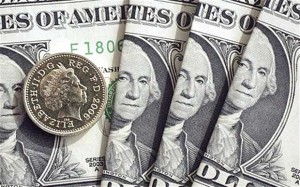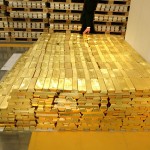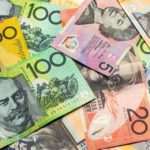 The pound declined a fifth day against the US dollar, to touch the lowest level in two weeks, following a report that revealed UK manufacturing expanded at a slower-than-expected pace in January.
The pound declined a fifth day against the US dollar, to touch the lowest level in two weeks, following a report that revealed UK manufacturing expanded at a slower-than-expected pace in January.
GBP/USD reached a session low at 1.6324 at 10:55 GMT, after which consolidation followed at 1.6338, losing 0.6% for the day. Support was likely to be received at January 17th low, 1.6310, while resistance was to be met at January 31st high, 1.6498. The pair settled last month 0.75% lower.
The pound was pressured as the UK Chartered Institute of Purchasing and Supply reported today that its index, a gauge of the UK manufacturing activity, declined to 56.7 in January, short of analysts projections of an increase to 57.1. Januarys reading was the weakest in three months, while the index received a downward revision to 57.2 in December from earlier estimates of 57.3.
The sterling, however, continued to draw some support after Bank of England reported last week that the mortgage approvals reached a 7-year high and UK house prices rose to the highest level since April 2008.
Bank of England released a report that showed the number of mortgage approvals increased to a 7-year high of 71 638 in December, after an upward revised figure of 70 820 in the previous month. However, analysts had expected that the mortgage approvals will rise to 72 900 and in addition the indicator has limited influence on the exchange rate of the pound as the BBA mortgage approvals account for over 60% of the overall mortgage approvals. The BBA data is released few days prior to BoE’s mortgage approvals data.
A separate report by the central bank revealed the net consumer credit, which includes personal loans, overdrafts, and credit card lending rose by 0.6 billion pounds in December, after November’s reading was upward revised to 0.7 billion pounds from earlier estimates of 0.6 billion pounds increase. According to the median analyst’ forecast the index should have increased to 0.7 billion pounds last month.
A report by the UK Nationwide Building Society on Thursday, showed the average cost of a home surged by 0.7% in January, reaching 176 491 UK pounds, the most since April 2008. Analysts had predicted that home prices will rise 0.6%. Prices soared 8.8% in January, compared to the same period a year ago, marking the biggest annual advance since May 2010.
“The data that we’ve had since the start of the year have been good but many people have been disappointed it hasn’t been better,” said Jane Foley, senior currency strategist at Rabobank International in London, cited by Bloomberg. “That’s taken some of the froth out of expectations for performance of the U.K. economy and sterling.”
Meanwhile, greenback’s demand continued to be supported after Thomson Reuters in cooperation with the University of Michigan reported on Friday that the final reading of their US consumer confidence index, increased to 81.2 in January, outstripping experts’expectations that pointed to a value of 81.0. The preliminary reading which was released on January 17th was 80.4, while the final value of the index stood at 82.5 in December.
Later today, a report may show that the US manufacturing PMI slowed down to a reading of 56.4 in January from 57.0 in December. The Institute for Supply Management (ISM) is expected to release the official figure at 15:00 GMT today. Better than projected readings will certainly provide support to the greenback.
Elsewhere, EUR/USD touched the weakest level in two months at 1.3478 at 07:50 GMT, after which it advanced by 0.11% to trade at 1.3504 at 09:58 GMT. Support was likely to be received at November 22nd low, 1.3463, while resistance was to be encountered at January 31st high, 1.3568.





